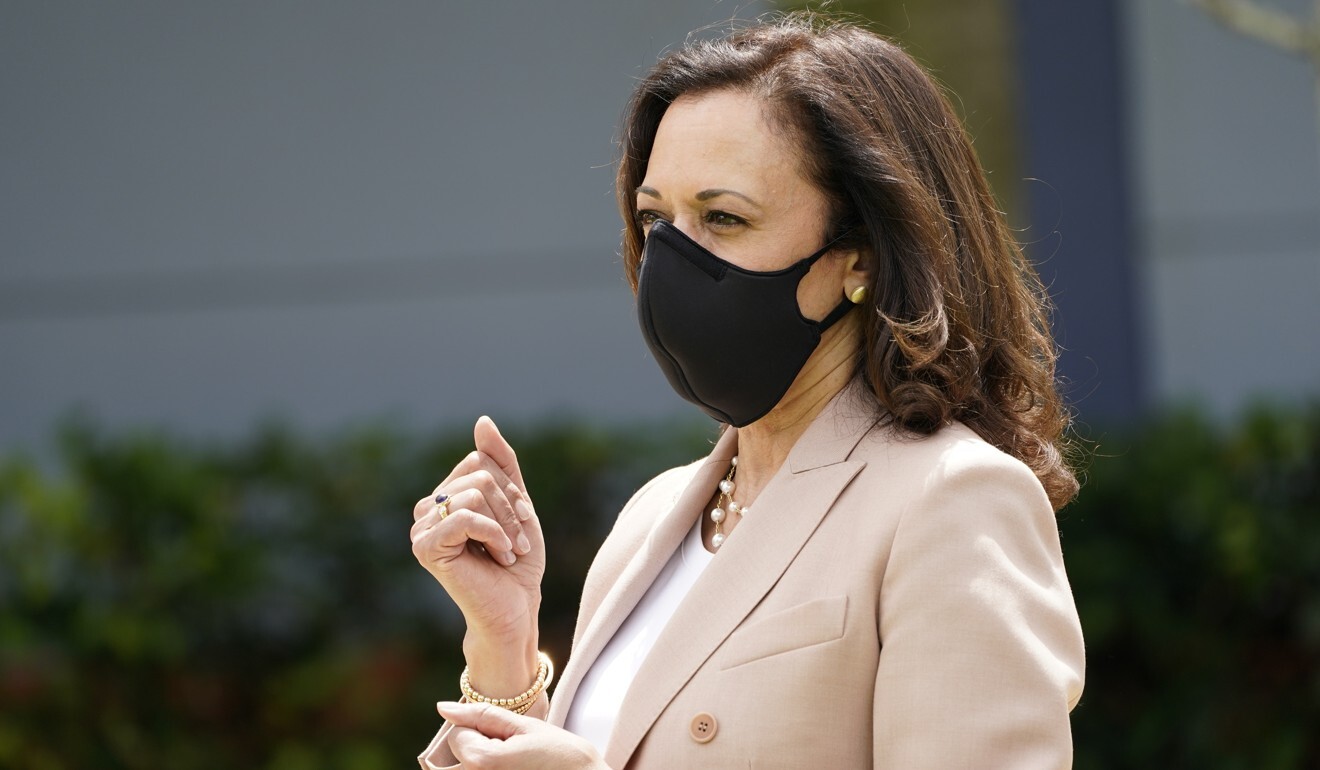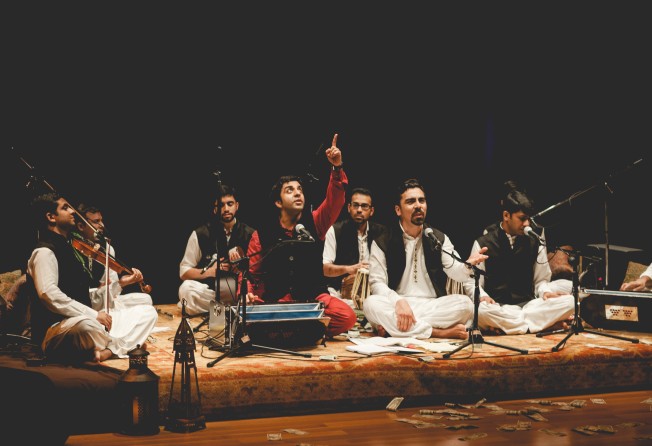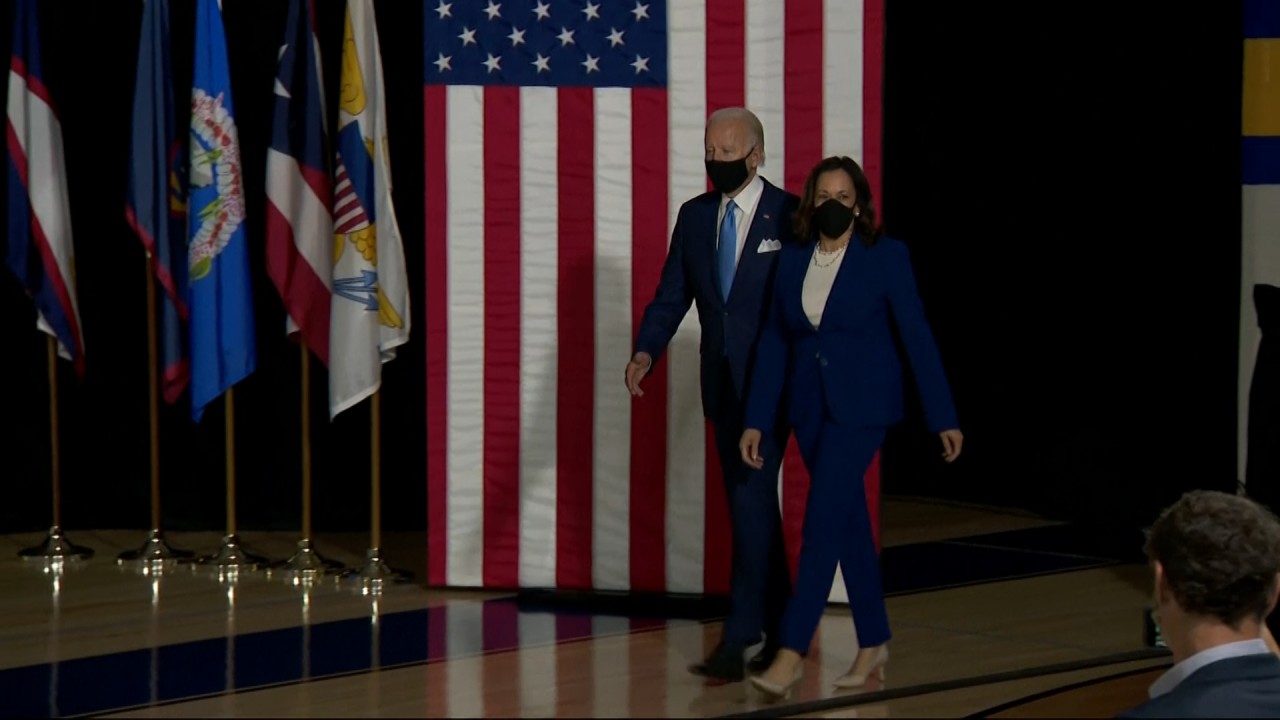
US election: In Texas, Sufi music and Netflix celebrities part of move to get South Asians to vote
- Kamala Harris’ bid for vice-president has energised South Asian-American voters, and at least four from the community running for office in Texas this year
- Netflix celebrities including Houston native Aparna Shewakramani of Indian Matchmaking are engaging with millennials to get their support for Democrats

Ahead of the United States election on November 3, a group of musicians is hoping to use the power of song to motivate the South Asian-Americans of Harris County, Texas, to vote – specifically through qawwali, a form of Sufi Islam devotional music that harks back to the 13th century.
The songs aren’t peppy numbers instructing voters to go to polling places. According to lead singer and artistic director Sonny from the band Riyaaz Qawwali, they aim to provoke intellectual and spiritual conversations within the South Asian community on the importance of exercising their voting rights.
More than 5 per cent of Texas’ 29 million people trace their roots to Asia or the Pacific Islands, according to a Houston Public Media report – a voting bloc that has taken on a new significance with at least four South Asian-American candidates running for county, state and federal office in the Lone Star State this year.
Of Harris County’s 4.7 million people, about 2 per cent are of Indian, Pakistani, Bangladeshi and Sri Lankan descent, according to estimates from Rice University’s Kinder Institute of Urban Research. The largest county in Texas, its administrative seat is the city of Houston.
Chanda Parbhoo – founder of South Asian Americans for Voter Education + Engagement + Empowerment, a progressive group spreading voting registration awareness among Texans of South Asian descent – said politics was not usually at the forefront of South Asian immigrants’ minds.
“Often, South Asians don’t feel that they are part of the system or their vote counts,” Parbhoo said. However, the selection of Senator Kamala Harris – a Democrat of Indian and Jamaican descent – as running mate for presidential candidate Joe Biden is seen as being likely to bring more South Asian voters to the polls.

“When someone from our community runs for office, it does energise us,” said Christine Chen of Washington-based APIAVote, which looks to mobilise Asian-American and Pacific Islander voters across the US.
R.K. Sandill, the first judge of South Asian descent elected in Texas, said he had watched the political influence of his community grow in Houston and the rest of the state.
“In the past, we did not participate in the political process in equal strength to our population, but that’s changing. We are becoming a key focus of candidates for office,” said Sandill, who is running for re-election as judge of Texas’s 127th Civil District Court in Harris County.
Anita Chari, associate professor in political science at the University of Oregon, said there were challenges in mobilising “newer” migrant communities – especially working-class South Asians – to vote, due to language barriers and also because some continue to be “more invested in politics back home than in the US”.
However, she said Harris’ presence as a potential vice-president was a “crucial opportunity” for South Asian-Americans to stand in solidarity with struggles for racial justice and against anti-black violence, and to combat racism within their own community.
Besides racial discrimination, immigrant rights and the economic crisis due to the Covid-19 pandemic are key issues for South Asians, according to voters who spoke to This Week in Asia.
Sri Preston Kulkarni, a Democrat of Indian-American descent who is running for Congress in Texas’ diverse 22nd District this year, is reaching out to voters in their own languages, including Tamil, Urdu and Mandarin. A part of Harris County also comes under the 22nd Congressional district.
Said Houston-based political analyst Keir Murray: “South Asians are an important voting target, both for turnout and persuasion, in certain key races including the 22nd Congressional district. If they can be brought out in large numbers, South Asians could determine the outcome there.”
South Asians in Texas ranged from university professors and corporate titans to the owners of small motels and shops, said Sumit Ganguly, professor of political science at Indiana University.

03:59
Joe Biden and Kamala Harris take stage on US presidential campaign as Trump lashes out
“Their voting behaviour, in considerable measure, will be driven by class interests. Well-heeled members of the community, more than likely, will vote for [President Donald] Trump because of his fondness for tax cuts, deregulation and talk of law and order issues,” Ganguly said, adding that the handling of the Covid-19 pandemic – especially in Texas, by Republican governor Greg Abbott – could cut into some of that support.
Texas has reported some 692,000 cases of Covid-19, along with more than 14,400 related deaths. The US has more than 6.5 million cases, and close to 195,000 deaths from the disease.
According to Richard Murray, a political-science professor at the University of Houston, South Asians are the fastest-growing demographic group in Texas, which has become an electorally competitive state due to its metropolitan areas moving toward the Democrats.
Also running for Congress, in Texas’ 31st District, is Bangladeshi-American Donna Imam, while Indian-American non-partisan candidate Abdul Khabeer is running for city council in Irving.
Historically, many South Asian voters leaned Republican, but Keir Murray said that was changing. “As anti-immigrant rhetoric and attacks on religious groups have become a feature of some Republican officeholders, Asian-American voters have begun to move away from the Republican Party.”
Still, more than 50,000 Indian-Americans attended the “Howdy Modi” rally in Texas in September last year, at which India’s Prime Minister Narendra Modi seemingly endorsed the re-election of US President Donald Trump. A relatively smaller section of Indians protested Modi outside the venue.
Modi’s brand of Hindu nationalist politics has also made its presence felt in the US in other ways. There have been allegations that Congressional candidate Kulkarni received funds from leaders of an organisation affiliated with the Rashtriya Swayamsevak Sangh, the ideological fountainhead of Modi’s Bharatiya Janata Party. Kulkarni has denied these connections, and did not respond to requests for an interview.
Still, the issue is a reminder that ethnic identity is not enough to energise voters, especially for the likes of Nag Jayaraman, an Indian-American voter from Texas. “We are Americans first,” Jayaraman said. “We take pride in diversity.”
Other community organisations are also trying to energise voters. The Indian American Coalition of Texas is organising faith-based outreach programmes to mosques, churches and temples and co-sponsoring public awareness programmes on elections, while the Austin Asian Communities Civic Coalition (AACCC) has sent out 24,000 voter registration applications to Asians across Texas.
The AACCC has spent US$30,000 on digital ads to encourage people to vote by mail, and to vote early to avoid long queues.
Karthik Soora – who co-founded the Texas chapter of They See Blue, a national organisation mobilising South Asians to help Democrats at the polls – said their focus was on millennial voters, so they had invited young celebrities from Netflix series such as Nik Dodani of Atypical and Houston native Aparna Shewakramani of Indian Matchmaking to engage with electors.
In Harris County, the members of Riyaaz Qawwali have picked two songs – one by Indian poet Firaq Gorakhpuri, a piece about difficult times that Sonny said would be easily relatable to struggles and health care disparities during the Covid-19 pandemic. The other, written by Pakistani poet Parveen Shakir, is to highlight xenophobia.
“We would visually interpret the song by narrating a story of an individual who has been othered, and made to feel inferior because of his immigrant status,” said Sonny, adding that the two videos will be uploaded to YouTube a day before the elections.
He said the music carried messages of love and harmony, but also challenged norms. “This is an important duality, relevant at a time when the country is polarised.”